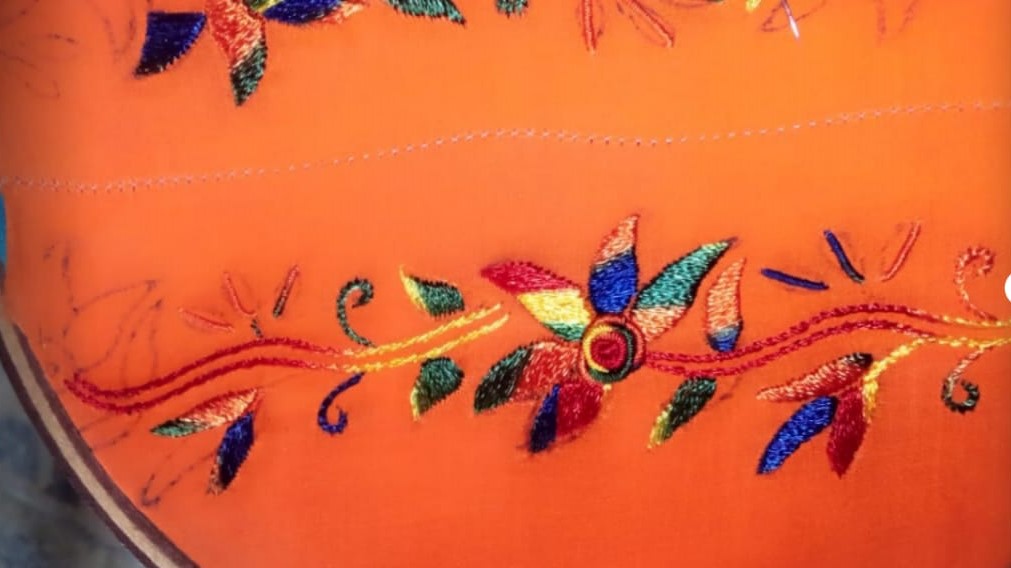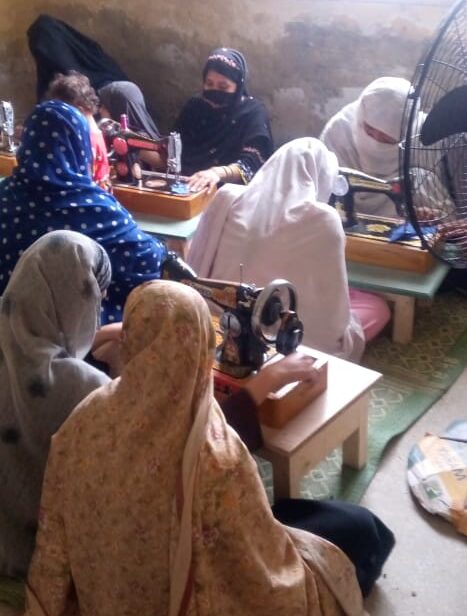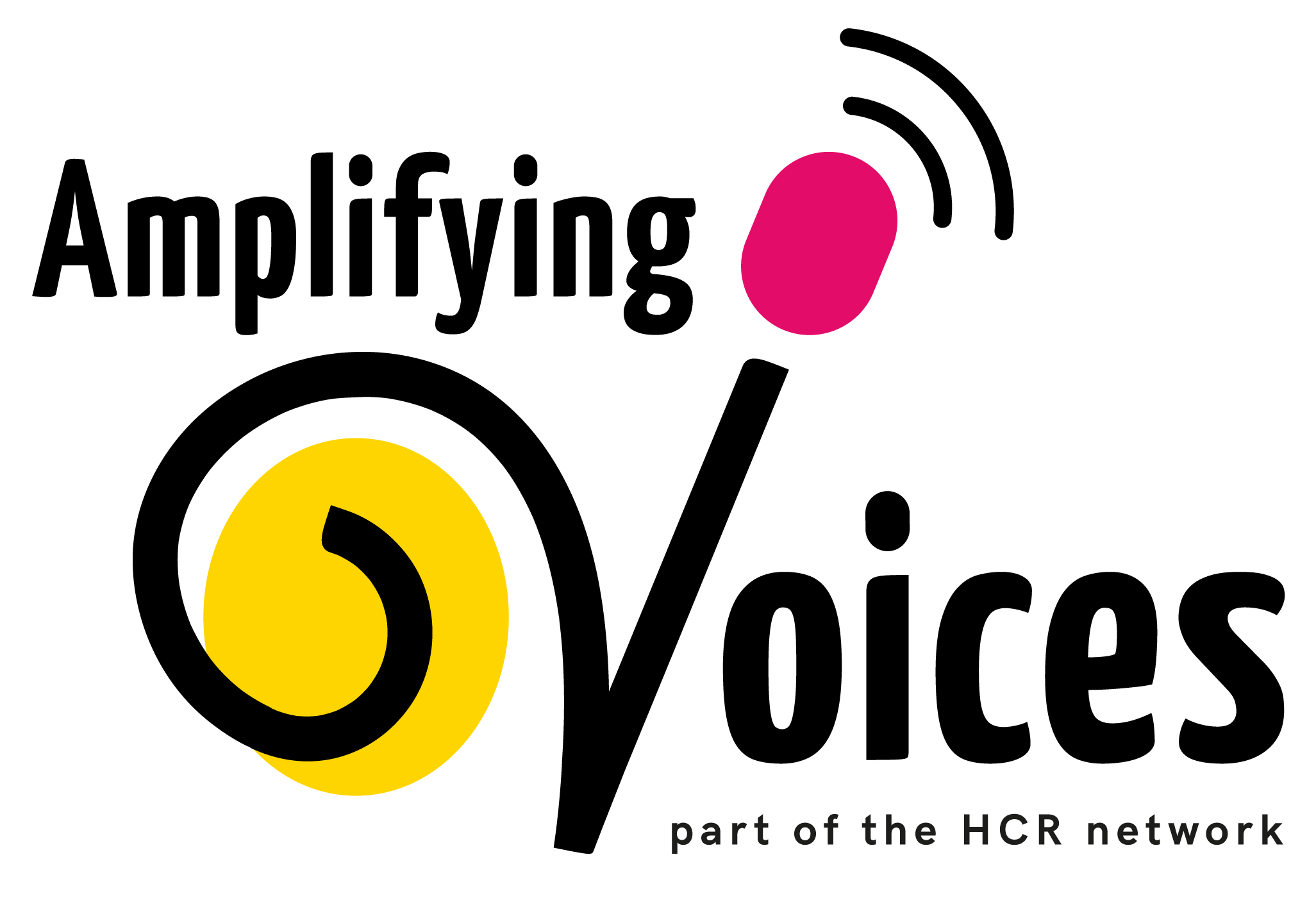
Things no-one talks about
Bright Home (or Rokhan-e-Kore in Pashtu) helps women to create new opportunities for themselves and their families in communities where men are culturally expected to be the ones making decisions and generating the family income. This can create dilemmas about when to courageously overcome cultural barriers and when to operate sensitively within cultural norms. Hazeen Latif from Amplifying Voices Pakistan shares some insights into how this is happening in a community where Rokhan-e-Kore is just getting started.

Rokhan-e-Kore class, KPK, 2023
Sewing classes have been running now for several weeks and young girls who attend have told us that they have learned a lot. They can see how they will use these skills to earn money from their families. Some of the participants said they would be interested in learning computer and media skills. But there are challenges.
It started with a challenge to one of our own norms! We have a training mantra which you may have heard us say before: “Get your shoes dirty”. It’s a shorthand way of saying people should build trust and be relevant by getting out of their office or studio into the community to engage with people on the streets and in the markets. The women attending the sewing classes had picked up on this aspect of community-centred media, perhaps during discussion about community-centred media in the broader community during the AViD response to the floods last summer. When discussing the possibility of including media training in Rokhan-e-Kore, the participants said they couldn’t be involved if it meant going out to record interviews etc in the streets and markets of their own village and neighbouring places. They said it has been a big thing for many of these women and girls to get permission from their families to attend Rokhan-e-Kore in a classroom outside their homes. They don’t want to jeopardise that.
Hazeen explained that they would be able to do all media learning, recording and other production within the classroom. The class teacher is very willing to learn how to teach the media skills, so eventually Hazeen would not need to be the one teaching. He also explained that the purpose of the “get your shoes dirty” principle is to persuade media people and service providers (eg clinics, religious groups) to leave their comfort zones to come and listen to people in community locations, like the women in the sewing class. The voices of local women making and taking new opportunities are the voices that media should amplify.
Hazeen also recognised that it could be a bit scary to talk on a radio programme, which could go out via a local FM station, about these new opportunities and the participants’ roles in creating them. It’s scary because it the people who traditionally make decisions and create income might feel threatened by the programme content. He encouraged the women that they could use pseudonyms whenever they create content, and that the name of their village needn’t be mentioned. This does create a challenge for one of our other norms – that of building trust and rapport with community members through familiar voices. However, listeners don’t need to identify the women speaking to be able to identify with them. The women have familiar accents and their stories or challenges are similar to what the listeners’ face.
Within minutes of Hazeen providing these reassurances, the participants asked him,
“will we able to talk about the womens’ issues that no-one ever talks about?”.
With an emphatic yes, Hazeen was delighted to say that this is one of the main reasons why we offer media training and ongoing support to create programmes. It’s what community-centred media should be all about.
Paraphrasing something I heard from Fred Bahnson, the frontlines of change are best led by those most disadvantaged by the status quo. In Rokhan-e-Kore contexts, we are equipping those disadvantaged by the status quo to take their first steps as agents of change by helping them to feel sufficiently safe to do so.
The arrival of some solar panels gave another indication that these culturally sensitive steps are bearing fruit. Hazeen and his local partner leave most of the engagement with class participants to a local woman so that there are only few occasions when a man is present and so the women can continue to observe “purdah” (or seclusion from men). Because the classes are in a public place outside their homes, and because a man may occasionally be present, the women do wear veils in the classroom. At this time of year, it gets very hot, and wearing a veil makes the heat even harder to bear. However, a local man has agreed to donate solar panels if Hazeen can provide pedestal fans. This reflects that some local men value the Bright Home activities and want to do something to support.
